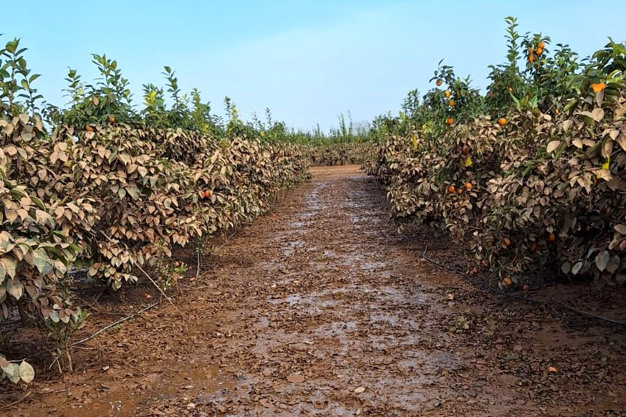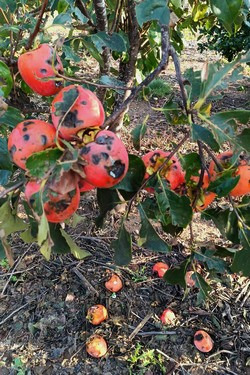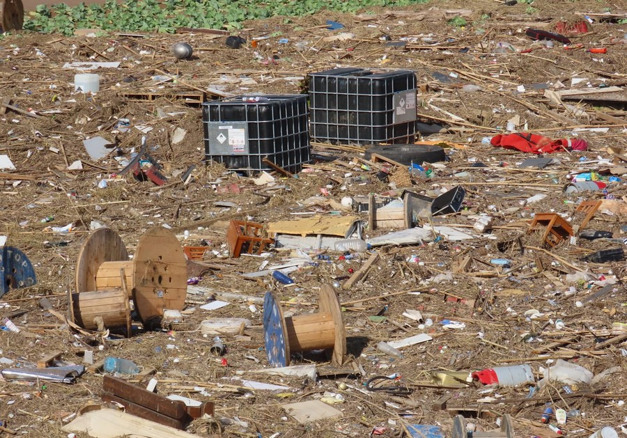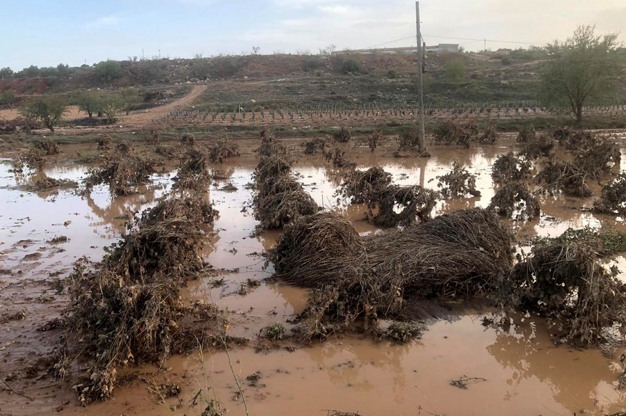As time goes by, we are getting an increasingly clear picture of the extent of the damage to the fruit and vegetable sector caused by the storms and floods of October 29 in the province of Valencia. After regaining access to the affected farms, it has been possible to see the actual condition of the fields and infrastructure, especially the irrigation pipes and piping systems, both in irrigation communities and private plots, many of which have been completely destroyed, according to Jenaro Aviñó, Director of AVA-ASAJA. "The damage to these infrastructures has brought the losses from 1,080 million Euro to 1,379 million."

"Damages to the production are also greater than initially estimated. In the specific case of citrus fruits and kakis, we were talking about 33,000 hectares affected, and right now, that figure has risen to 50,000 hectares, as municipalities which had initially not reported damages have eventually done so," he says.
"As for citrus fruits, we think that the storm has caused a 15% drop, equivalent to around 300,000 tons, while in the case of kakis, we believe that there may have been a 60% reduction in the volume that was yet to be harvested, so we estimate the losses at 70 million Euro. In other words, there have been losses, but there is still fruit left on the trees to be harvested, both citrus fruits and part of the kakis," says Aviñó.

"However, the damage to irrigation infrastructures is much more severe than it seems. Some irrigation entities and communities were going to start irrigating in the highest areas, where the trees need water, at the beginning of December, but many of them have been left without adequate infrastructure to serve their members," he says.
"We are also seeing situations where, in order to harvest the fruit, trucks and pickers are being forced to cross multiple plots and walk hundreds of meters across other farms or in the countryside to reach the trees to be harvested. Faced with this need to enter the plots, some town councils and producers are getting ahead of the company that is going to repair all the damaged infrastructure and are repairing the accesses themselves. However, for the time being, they don't know whether they will be able to get back the money from the investments they are making now, and which are considered the biggest priority," says Jenaro Aviñó.
"If there is one thing I can be proud of as an agricultural representative it is the generosity and solidarity of our producers"
"We understand that the priority has been helping people and the repair of housing, but we must also take into account the urgency of the agricultural sector. One of the entities that have behaved very ethically has been Agroseguro, as we are aware that many growers are being paid just a week after the damage assessments," says Aviñó.

"If there is one thing I can feel proud of as an agricultural representative it is the generosity and solidarity of our producers. They did already in COVID times, and they have done it again now. The first tractors that went out to help were those of agricultural producers," says Jenaro Aviñó, touched with emotion. "Our members would call us, asking us to please help them, and 15, 20 or 30 tractors would come to any given village; whatever was available at the time. Many of those producers had plenty of damage to their own homes to deal with, and they chose to go and help those who had been more severely affected. This shows a lot of heart and great solidarity, values which have always defined the agricultural sector.
"That is why we expect a response from the authorities and the Ministry at the same level as the one we give whenever we are needed," says Aviñó.

"Supply to the markets is fully guaranteed"
Meanwhile, the citrus season is still underway with a "fully guaranteed" supply from Valencia, because despite the 15% drop in the production, "there will still be enough fruit to supply the markets."

"Logically, trade has been rather at a standstill and citrus operators needed to see how the quality of the fruit could have been affected, which is why they didn't start buying again until a few weeks ago. However, this week in the Lonja the price of some varieties has increased and some are even buying Lane Late, which means that interest in citrus has been revived."
"It is worth noting that up until now there has been competition from South Africa, which is now coming to an end, and soon there will be competition from Egypt, especially in oranges. But before this imported fruit has even started to arrive, we are already receiving calls from companies who, this year, out of solidarity with those affected by the storm, want to buy Valencian produce. We have the best citrus fruits and this year, more than ever, a repeat of last year's situation should be prevented," says Aviñó.
For more information:
Jenaro Aviñó
AVA-ASAJA
Tel.: +34 96 380 46 06
[email protected]
www.avaasaja.org
